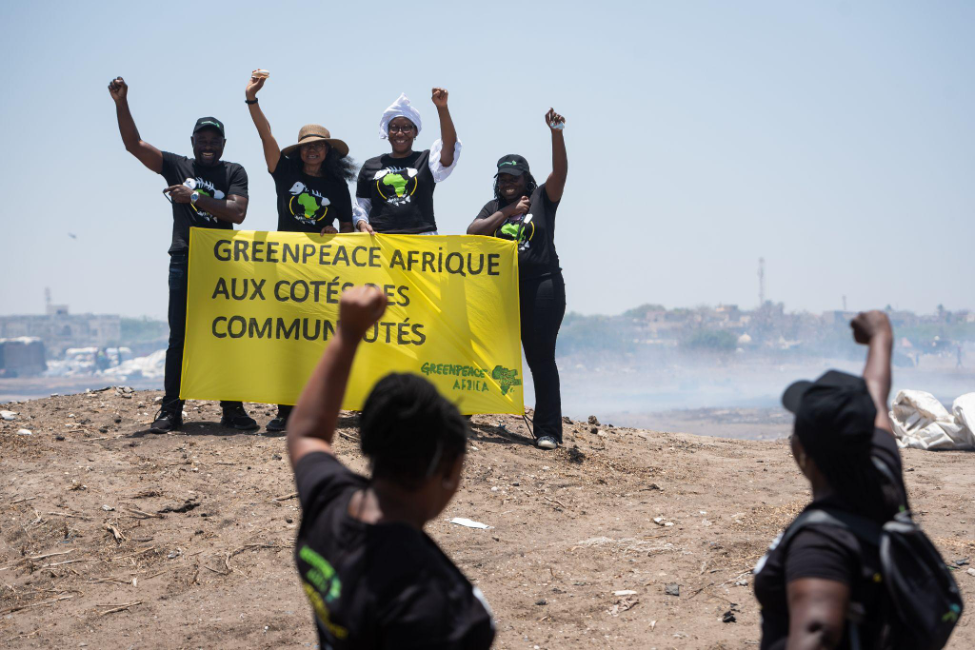
Greenpeace Africa’s Board of Directors recently travelled to Bargny, a Senegalese town just 30 km from Dakar, to show their solidarity with the communities and activists there. Bargny is facing environmental threats that put it at the risk of collapse. The daily lives of its inhabitants are plagued by the effects of coastal erosion and the presence of extractive and polluting industries everywhere.
During their visit, the Board of Directors of Greenpeace Africa met with members of the local fishermen’s committee of Bargny. This dedicated group fights tirelessly for better fisheries management in their region. They are involved in constructing artificial reefs and establishing marine protected areas to restore the marine ecosystem.
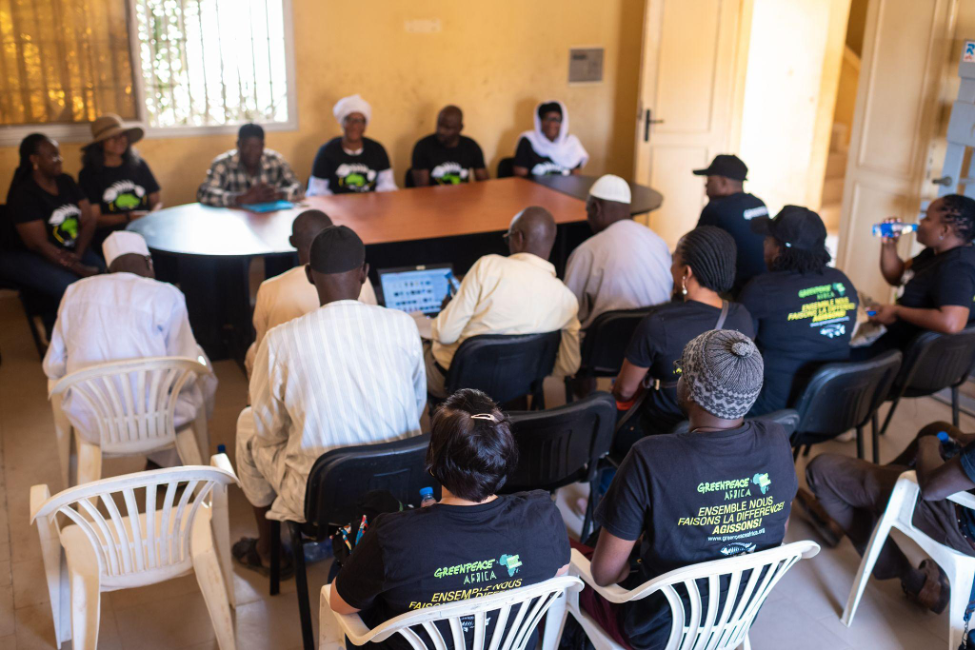
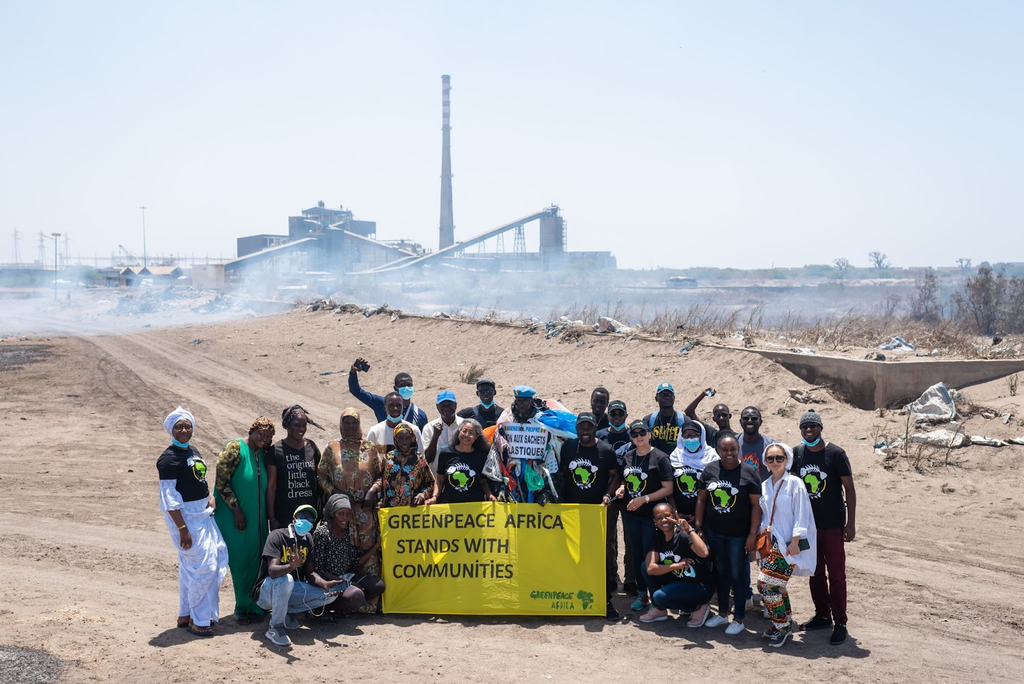
Greenpeace’s board also paid a visit to the fish processing site in Khelcom, where hundreds of women do the arduous job of smoking, drying, braising, and salting fish, among other activities. Despite the significant socio-economic contribution of their work in Senegal, this trade is not yet officially recognized by the administrative authorities. Without a proper legal framework, these women fish processors find themselves vulnerable, devoid of representation in consultative bodies, and lacking access to appropriate financing and raw materials.
The president of the processing site, Fatou Samba, expressed her great pleasure in hosting the board members at the site, and emphasized the pivotal role played by Greenpeace in the early stages of the community’s campaign against a coal-fired power plant.
“Greenpeace Africa was our very first partner in the fight against the coal plant, and we learned so much from them! Personally, I’ve had the incredible opportunity to receive extensive training that has made me a stronger, more confident woman leader. I feel so much more equipped now, especially when it comes to embracing my personality. And I’ve come to realize that the world doesn’t stop right here,” said Ms Samba.
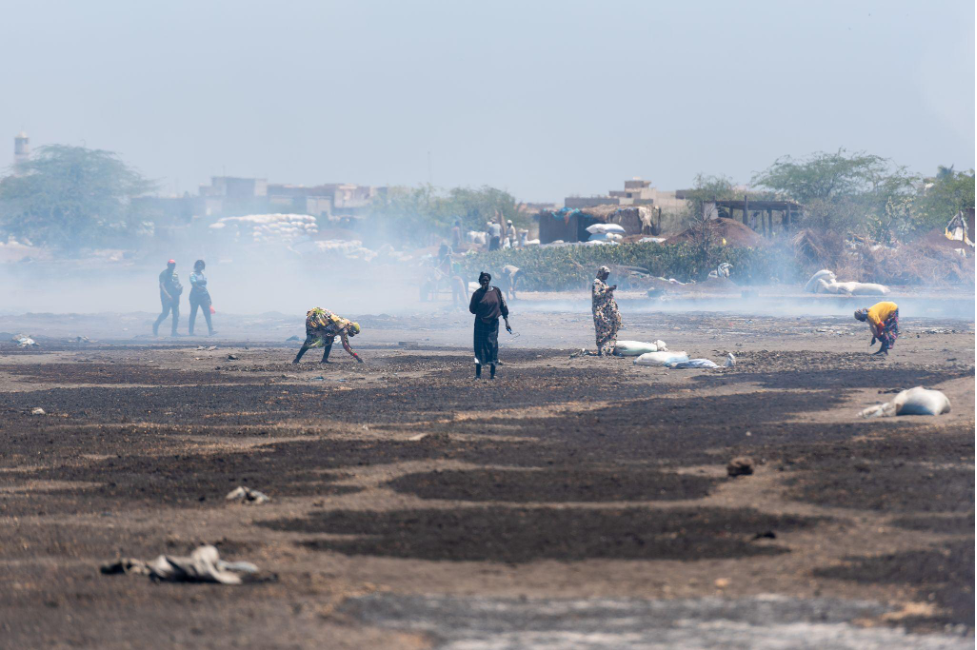
She continued: “In 2021 we found some guys conducting topographical surveys right here on the Khelcom site. I approached them, to find out what they were up to. But they refused to answer any of my questions! So I firmly ordered them to halt everything, and they did. But the very next day, we had another delegation show up, made up of Apix representatives, Finance Ministry officials, and the territorial authorities. When I discovered it was all about a site visit related to setting up a Turkish foundry and steel factory, I didn’t waste a second. I went live on Facebook! I alerted the whole Bargny community through a live broadcast! Thanks to the Greenpeace communications and social media training that we received, we could alert our community in time, and they immediately joined us at the site. Together, we persuaded these people not to pursue the project.”
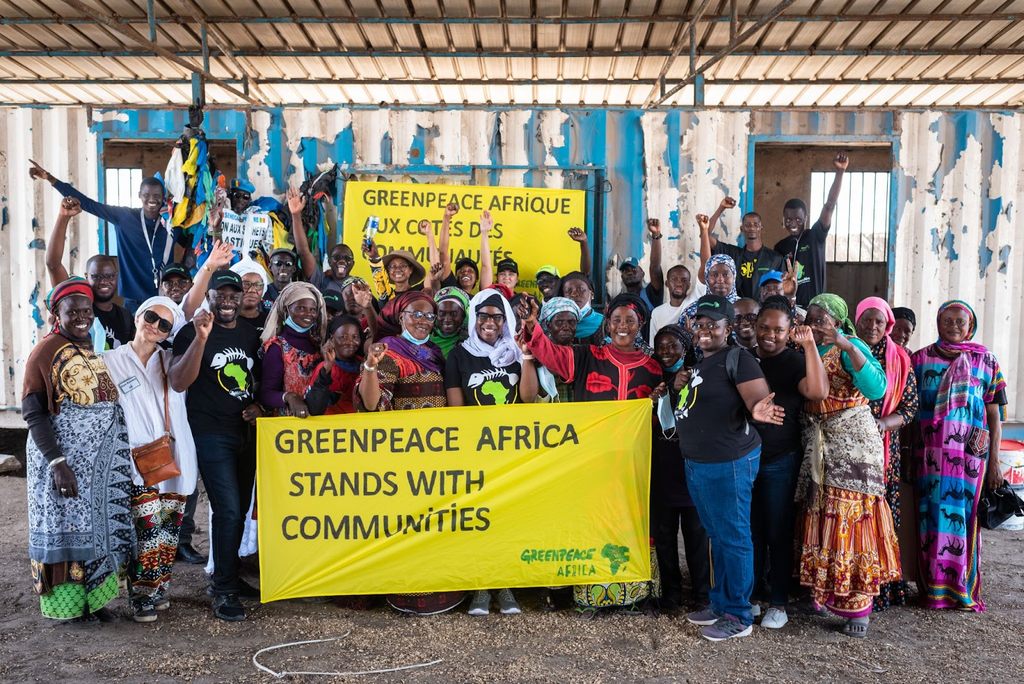
“And you know what? We owe our lightning-fast response and ability to rally the community to action to the fantastic training we received from Greenpeace Africa. They taught us how to wield the power of communication tools and social networks like true pros! It’s thanks to those invaluable lessons that we were able to sound the alarm just in time and get the community on board, dissuading the delegation from pushing forward with their ill-conceived project,” Fatou Samba concludes, with a sense of pride and accomplishment.
As the visit concluded, the board members expressed their unwavering support for the communities. “It is so gratifying to witness firsthand the remarkable work you are doing amidst such challenging circumstances. Together, we will safeguard our precious resources and combat food insecurity, making a tangible difference in the lives of Bargny’s communities and across Africa,” stated Oury Traoré, Chair of the Greenpeace Africa Board.
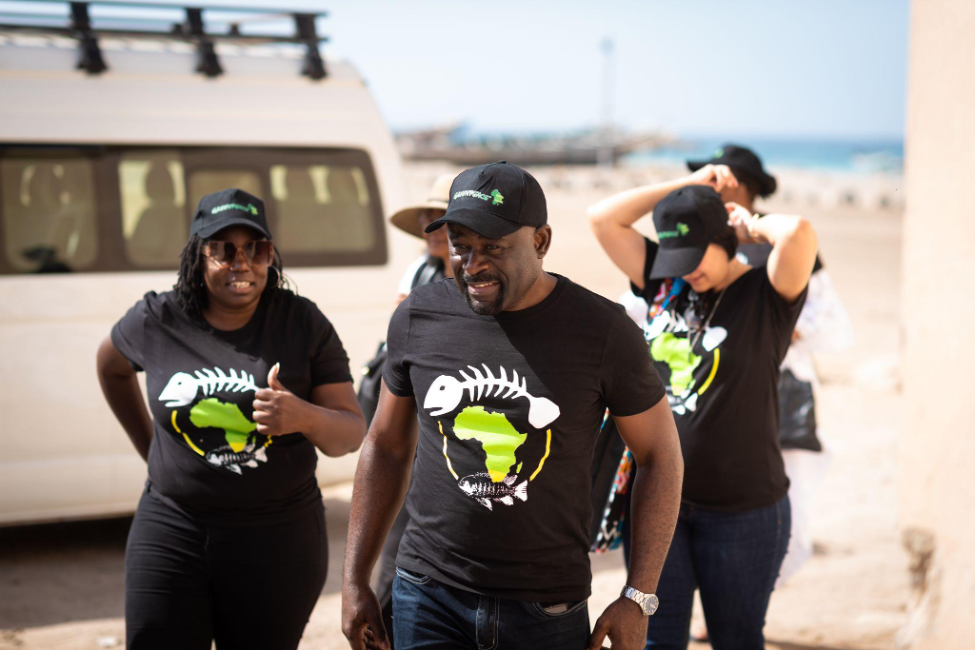
Amagor Robert Niang
Greenpeace Africa / Sénégal
[email protected]
